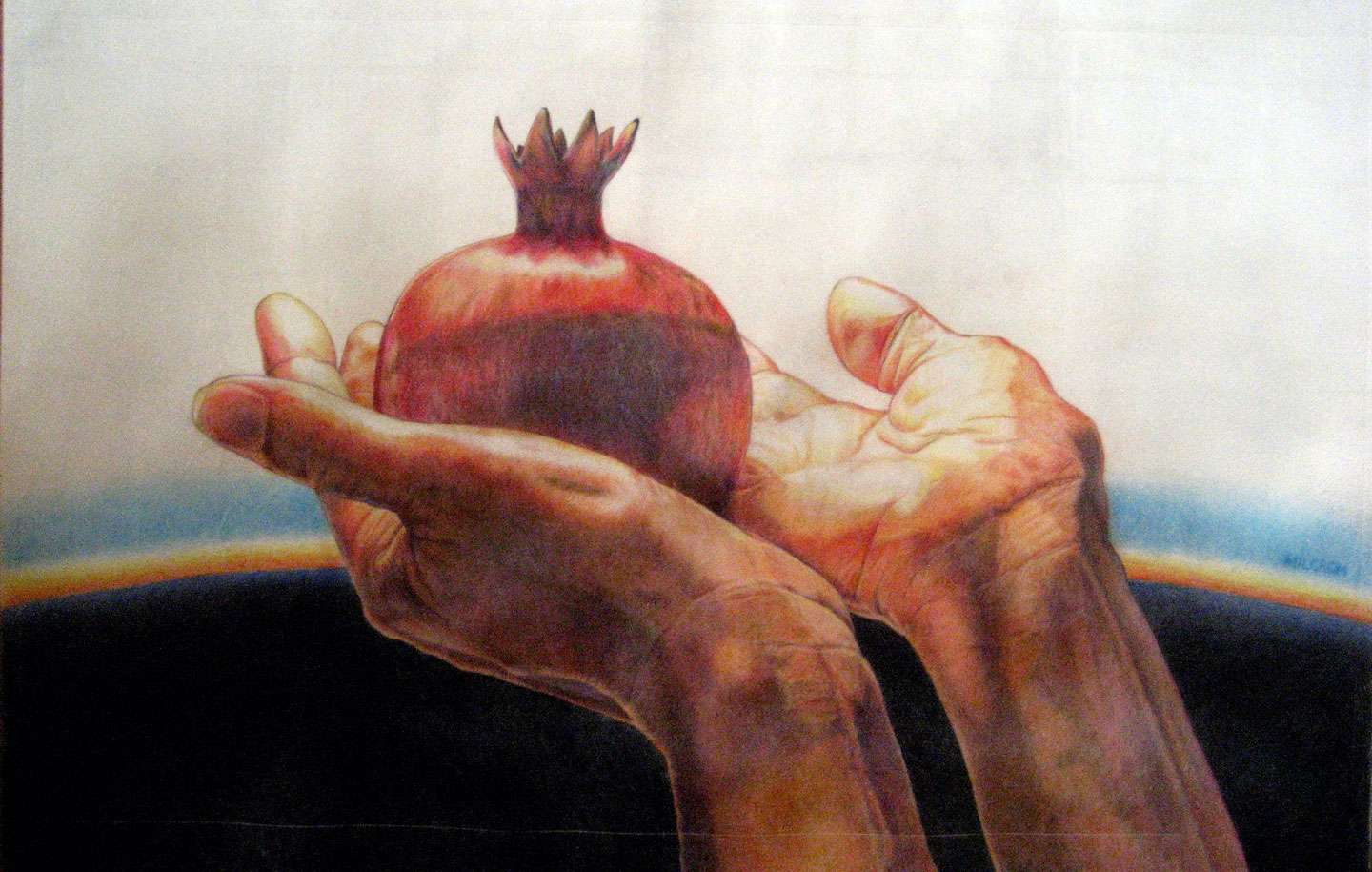 Dr. Michael Mantell
Dr. Michael Mantell
SAN DIEGO — Couldn’t we all use some genuine happiness about now? This week’s parasha may be just the thing that can help us create it. We are offered these days of Elul to be an ais ratzon, a space filled with the love and desire between us and Hashem. Do you encounter your Judaism as a “get to” or a “have to” experience? This week’s Torah reading, Ki Tavo, asks us to consider how we serve Hashem, with joy…or with oy, “…because you did not serve the Lord, your God, with happiness and with gladness of heart, when [you had an] abundance of everything…you will serve your enemies.”
This verse, according to the Arizal, teaches us to choose joy as we perform the mitzvot. Just doing mitzvot is not enough. Doing so with gladness of heart is the proper way. Remembering where we come from, not “who we are,” but “whose we are” expands this gladness. The everlasting love between us and our parent, Hashem, is what anchors us in whose we are. And teshuva is the power that helps us renew our relationship and begin anew. Believing that we have unconditional acceptance from Hashem, that He awaits us to return, is the source of our prayers at this time of the year, in particular.
Can you imagine being told that we either have joy in our hearts as we serve Hashem, or we will serve our enemies? Isn’t this like what we read in Psalms? “Rejoice with the Lord and exult, You righteous, and cause all those of upright hearts to sing praises.” Righteous? Upright hearts?
Who is always righteous and who always has an upright heart? But then, we are talking about singing praise to Hashem, and performing the mitzvot that He lovingly gave to us with joy, for our benefit. And wouldn’t we truly benefit physically, emotionally, and spiritually if we did? Sounds happy to me. So, what does it take to cultivate this level of expected joy and leave the “oy” behind?
Wake up tomorrow morning with intentional, deeply held gratitude for your life, and with an understanding of where your life comes from. The One who is here, there, everywhere. Ready to have breakfast? Stop, really stop, and with a mind and heart full of awareness and gratitude, recognize where your food originates from. Imagine the genuine connection you desire with this Source of life and nourishment, and for all you have…so, are you smiling yet? That joyous feeling that’s overcoming you commences from your soul, the one He gave to you.
You see, the “happiness and gladness of heart” spoken of in this week’s parasha, is YOURS to CREATE, not YOURS to BE GIVEN. It is within your ability, from within, not at all based on anything external, to rouse and stir these feelings. Who is the person who fully, wholeheartedly, and unreservedly does so? Or perhaps we could better ask as we do in Psalm 34, “Who is the man that desireth life, and loveth days, that he may see good therein?” Perhaps seeing good, finding growth in every step of life, recognizing the benefits in all that is put in front of us – the good and the not good – is the challenge of this week’s Torah reading. Literally, Ki Tavo, “When you enter,” from the moment we enter every day, and through every part of our day, we are taught the value of desiring life, loving our days, and seeing good throughout. We read in the parasha, “Then you shall rejoice with all the good that the Lord, your God, has granted you and your household you, the Levite, and the stranger who is among you.” Rejoice. Sounds like a great antidote to COVID19 weariness.
Soon, in the Ten Days of Repentance, we will chant about the value of “Teshuva, Tefillah, and Tzedakah,” repentance, prayer, and charity, to help us return to our authentic selves, and to act in harmony and honorably with Hashem. Consider before we recite the Sh’ma we say, “Hashem, give our heart the capability to know and to understand, to learn and to teach to observe and to uphold WITH LOVE all the teachings of your Torah.” Nothing is given to us without our putting in the effort. The effort to find the “get to” and not the “have to” in our religious lives, to build the commitment to perform mitzvot with joy, not with oy, will, IY’H, bring us into a new year with hope and expectancy, with anticipation for all the good that He awaits to bring to those who “serve the Lord, your God, with happiness and with gladness of heart…”
This is the time of the year when we reflect, when we turn inward, review our past year’s successes and disillusionments, with the purpose of looking forward to a better year…in other words, gezunt, hatlacha and parnassa. As we all gather together before Hashem at this time, let’s be mindful that we are truly His cherished children, whom He loves, and Who is waiting for us to return to Him.
*
Michael R. Mantell, Ph.D., prepares a weekly D’var Torah for Young Israel of San Diego, where he and his family are members. They are also active members of Congregation Adat Yeshurun.


























